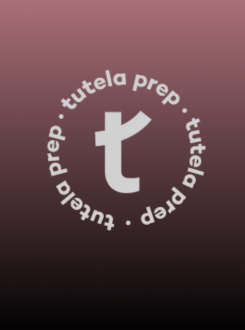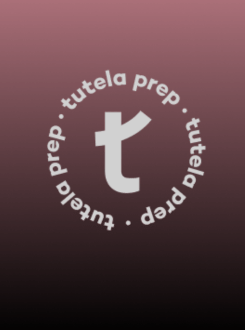At Tutela Prep, we specialize in helping ambitious learners achieve top ACT scores that open doors to the world’s best universities. With personalized one-on-one teaching, data-driven assessments, and advanced digital tools, our program equips students with everything needed to succeed in the updated ACT exam.
Whether the goal is admission to the Ivy League, top U.S. universities, or global institutions, Tutela’s 91% success rate in Standardized Test Prep proves that our mentorship model is effective.
Specialized in one-on-one personalized sessions led by expert ACT tutors with years of proven success.
91% of Tutela students achieved a 31+ score on the ACT Exam and 1400+ in the SAT Exam.
Our program is structured to prepare students for both their first and second official ACT attempts , ensuring maximum growth and improvement.
Exclusive access to 50,000+ practice questions across courses based on the updated ACT Exam structure and format.
Students and Parents receive real-time updates through Tutela Connect and dedicated groups with Academic Heads to ensure the right resolution to queries.
Tutela’s ACT program is designed to build better content understanding, sharpen test-taking strategies, and strengthen exam stamina. The ACT Prep is completely personalized and aligned with the latest ACT.org updates, including the new composite scoring and streamlined test format, ensuring students are prepared with confidence.
| Feature | Tutela | Other ACT Programs |
|---|---|---|
| Class Size | Individual Private Classes with focused attention | 15–30 students, diluted attention |
| Faculty | Experts with 90%+ success in improving scores | Freelancers/college students |
| Approach | Customized learning plans for strengths & gaps | One-size-fits-all syllabus |
| Course Flexibility | Fully adaptable to pace & needs | Rigid lesson plans |
| Results | Global toppers, 34+ scorers | Average national-level results |
| Technology | AI-powered diagnostics, progress maps, analytics | Basic score reports |
| Parent Involvement | Transparent reports and strategy calls | Minimal or no updates |
| Global Reach | Students from 20+ countries | Limited local presence |




Rohit Datta
ACT: 36 / 36

Kriti Bhabu
ACT: 36 / 36

Diya Roongta
ACT: 36 / 36

Rahil Patel
ACT: 36 / 36

Kian Nagpal
ACT: 36 / 36

Akaash R. Parthasarathy
ACT: 36 / 36

Aditya Arora
ACT: 36 / 36

Manya Roongta
ACT: 36 / 36

Agastya Sinha
ACT: 36 / 36

Akrit Agarwal
ACT: 36 / 36

Saksham Aggarwal
ACT: 36 / 36

Aryan Satiya
ACT: 36 / 36

Manav Jairam
ACT: 36 / 36

Mahika Shetty
ACT: 35 / 36

Shorya Bhasin
ACT: 35 / 36

Aditya Sennik
ACT: 35 / 36

Aarav Singh
ACT: 35 / 36

Tarini Malhotra
ACT: 35 / 36

Medha Ravi
ACT: 35 / 36

Inaya Gulati
ACT: 35 / 36

Aditya Mahajan
ACT: 35 / 36

Aruj Bansal
ACT: 35 / 36

Ananya Asthana
ACT: 35 / 36

Anushka Bindra
ACT: 35 / 36

Aria Narasimhan
ACT: 35 / 36

Sarthak Bal Mitra
ACT: 35 / 36

Mahi
ACT: 35 / 36

Aaryaman Sen
ACT: 35 / 36

Aarav Kumar
ACT: 35 / 36

Tanya Sinha
ACT: 35 / 36

Ananya Dhanuka
ACT: 35 / 36

Joya Kapoor
ACT: 35 / 36

Karan Makkar
ACT: 35 / 36

Vedika Mandapati
ACT: 35 / 36

Anchita Arora
ACT: 35 / 36

Aryav Bansal
ACT: 35 / 36

Prithvi Oak
ACT: 35 / 36

Mahima Rao
ACT: 35 / 36

Aveesha Gandhi
ACT: 35 / 36

Baltej Miglani
ACT: 35 / 36

Zara Abbasi
ACT: 35 / 36

Ishir Talapatra
ACT: 35 / 36

Ishani Patil
ACT: 35 / 36

Ananya Balakrishnan
ACT: 35 / 36

Aarav Gambhir
ACT: 35 / 36

Siddhant Duggal
ACT: 35 / 36

Aadith Parthasarathy
ACT: 35 / 36

Vedant Venkatesh
ACT: 35 / 36

Taarush Grover
ACT: 35 / 36

Advik Lahiri
ACT: 35 / 36

Arjun Iyer
ACT: 35 / 36

Shaurya Sinha
ACT: 35 / 36

Karan Kashyap
ACT: 35 / 36

Nishtaa Modi
ACT: 35 / 36

Aditya Vikrant
ACT: 35 / 36

Rohit Yadavalli
ACT: 35 / 36

Parth Bansal
ACT: 35 / 36

Saanya Malhotra
ACT: 35 / 36

Aarav Wadhwani
ACT: 34 / 36

Nandan Patil
ACT: 34 / 36

Ananya Gupta
ACT: 34 / 36

Ambika Saklani
ACT: 34 / 36

Sumair Khattar
ACT: 34 / 36

Ahaan Bhansali
ACT: 34 / 36

Samarth Pal
ACT: 34 / 36

Ruhani Rathee
ACT: 34 / 36

Ahana Sur
ACT: 34 / 36

Amartya Malhotra
ACT: 34 / 36

Riya Sama
ACT: 34 / 36

Devika Goyal
ACT: 34 / 36

Nilay Solanki
ACT: 34 / 36

Ahaan Aggarwal
ACT: 34 / 36

Pavit Singh
ACT: 34 / 36

Arnav Arora
ACT: 34 / 36

Jai Sharma
ACT: 34 / 36
ACT Diagnostic Test is an essential tool for students preparing for the ACT exam. It accurately assesses their level of preparedness and identifies their strengths and weaknesses in the areas covered by the exam, helping them achieve their best possible score.
This online Diagnostic Test helps you understand which standardized test is the best for you.
| Subject | Test Date | Registration Deadline | Deadline for Changes, Regular Cancellation, and Late Registration** |
|---|---|---|---|
| ACT Test 2026 | Apr 10, 2026 | Mar 13, 2026 | Mar 27, 2026 |
| ACT Test 2026 | Jun 12, 2026 | May 15, 2026 | May 29, 2026 |
| ACT Test 2026 | Jul 10, 2026 | Jun 12, 2026 | Jun 26, 2026 |
Unlike large group classes, Tutela focuses on hyper-personalized live sessions and continuous mentor feedback. Parents stay actively involved through Tutela Connect dashboards and WhatsApp updates.
Yes. Tutela’s curriculum is fully aligned with ACT.org’s enhancements—shorter test length, new composite scoring, optional Science/Writing, and fewer math answer choices.
Students get access to 50,000+ practice questions, updated to match the new ACT, along with recorded sessions, assignments, and full-length simulated tests.
Tutela offers a diagnostic test and expert consultation to help families decide whether the SAT or ACT is a better fit based on the student’s strengths.
Turning journeys into stories that inspire us every day
I think Tutela is one of its kind in the teaching space. Never have I come across a team of such dedicated teachers ready to help you at each step of the way. I went to Tutela at the end of 10th grade for SAT. In just 3 months, my score shot up by approximately 140 points. I truly believe that Anam Ma’am teaches SAT writing and reading in the best and easiest manner possible. I would also like to thank Ashish sir who not only taught me the entire SAT Physics and SAT Math syllabus in a month but also voluntarily helped me with my Math HL IA. Mukul Sir is also a wonderful teacher who would always welcome my doubts. Thanks to their support, I was able to score exceedingly well on the tests. Tutela has a wonderful learning environment for you where you get to have one on one sessions with the teachers. Also, every single member of the team is so warm and friendly. Unlike many other SAT or IB prep centres, the environment at Tutela is very encouraging and positive. I loved spending time here! Read More

Pathways School, Gurgaon, Haryana, India
Tutela is by the far the best test prep institute with unmatched resources and stellar faculty who work on and off hours to bring best result from a student. My experience with Tutela has been amazing and I appreciate all of my teachers - including Ashish, Mukul, Sudeshna, and Pooja. Highly recommended! Read More

Deen Bandhu Public School, Delhi, India
Working with tutela over the last year has been absolutely amazing, they were extremely meticulous, gentle and adapting throughout my ACT prep. They helped develop strategies, work on identifying key problem areas and took an in-Depth tailored approach with every aspect of my preparation. Would highly recommend them to everyone! Read More

The Shri Ram School, Aravali, Haryana, India
I'm thrilled to share my amassing experience with Tutela. Thanks to their excellent guidance, I aced the SAT on my first attempt. Special thanks to English instructor Abhinav and math instructors Aakash and Somendra - their help and expertise played a significant role in my learning. They were there with me every step of the way and were extremely approachable. I genuinely felt supported throughout the journey. Tutela not only provided exceptional SAT coaching but also became a second home during my preparation. Highly recommend Tutela for ACT, SAT, and AP preparation. Read More

Modern School, Barakhamba Road, New Delhi, India
I highly recommend this coaching center. They had an extremely detailed and well-structured approach for my test preparation. Not only that, the teachers were very welcoming and comfortable to talk to. They would always arrange an extra class for coverups, doubt sessions whenever needed. Thanks to the entire team, I obtained my dream sat score. I enjoyed the entire experience (which is surprising to say for a tuition center?). Loved it! Read More

Delhi Public School, Gurgaon, Haryana, India
The rigorous academics, strenuous testing and hours of practice often associated with preparatory centres are immediately forgotten when stepping foot into Tutela. Each day spent here only further validates my belief that every aspect of your performance will be addressed and improved upon: from the moment you plan on taking a test to, finally, the day of your exam. Testing aside, Tutela goes above and beyond to create the most conducive environment for your success - one cup of coffee, food as incentive, and a host of the most supportive teachers that will make the entire process enjoyable and worth the effort. Read More

The Shri Ram School, Aravali, Haryana, India
My experience with Tutela has been nothing but positive. The tutors form a personal connection with the students and personally cater to all their needs and wants. The resources provided by them are top notch too! I would highly recommend Tutela! Read More

Heritage International Xperiential School, Gurugram, India
The teachers will be there for you every step of the way - they are the most compassionate and smartest people you will meet. I have had the pleasure of working with Ashish and Prashansa. Their teaching methods have allowed me to achieve an ACT score that I had previously only dreamt of. Although I have never been to the tutoring center or met the teachers in person (I am an International student), I could tell from our google meets calls that they are truly genuine and passionate about teaching. Outside of class, they quickly responded to my questions through whatsapp and tried their best to arrange extra classes.Tutela's service is truly one of a kind. With them, the sky's the limit. Read More

Jakarta Intercultural School, South Jakarta, Indonesia
I started SAT preparation with Tutela a few months before my exam, and during the time when I prepared, I learnt a lot of tips and tricks that were essential to crack the exam. Tutela's endless resources and personalised classes, along with the paper reviewing sessions, really force you to stop making mistakes and propel you to the score that will get you into your dream school. For someone who is not good at self studying for an exam this vast and important, I would recommend at least trying it out- the difference in your scores and your confidence is definitely worth it! Read More

Pathways School, Aravali, Haryana, India
Tutela was a great help during my AP prep. My mentors were very helpful in scheduling extra classes and practice sessions according to my requirements. They ensured that I was well-prepared by test day. Even though all my APs went well, Tutela made Calculus and Stats a far better learning experience compared to the ones I self-prepared for! Read More

The Shri Ram School, Aravali, Haryana, India
Tutela has been one of the most integral parts of my college applications process. As soon as I joined Tutela, I was overwhelmed by how supportive the teachers were. They helped me improve my SAT score by 120 points and they also helped me a get a 800 in SAT Subject Test(Math). I also took AP Calculus and Statistics classes, in which I got 5 and 4 respectively. Most importantly, teachers and students at Tutela share a mentor-mentee relationship which makes the learning experience thoroughly enjoyable. I strongly recommend Tutela as the one stop destination for standardized testing and APs! Read More

Sanskriti School, Gurgaon, Haryana, India
Tutela really personalised my test review which i didn't find anywhere else. The realistic yet challenging practice tests helped boost up my score significantly. Reviewing the answers i got wrong one on one prevented me from making similar mistakes in the future. Read More

American Embassy School, New Delhi, India